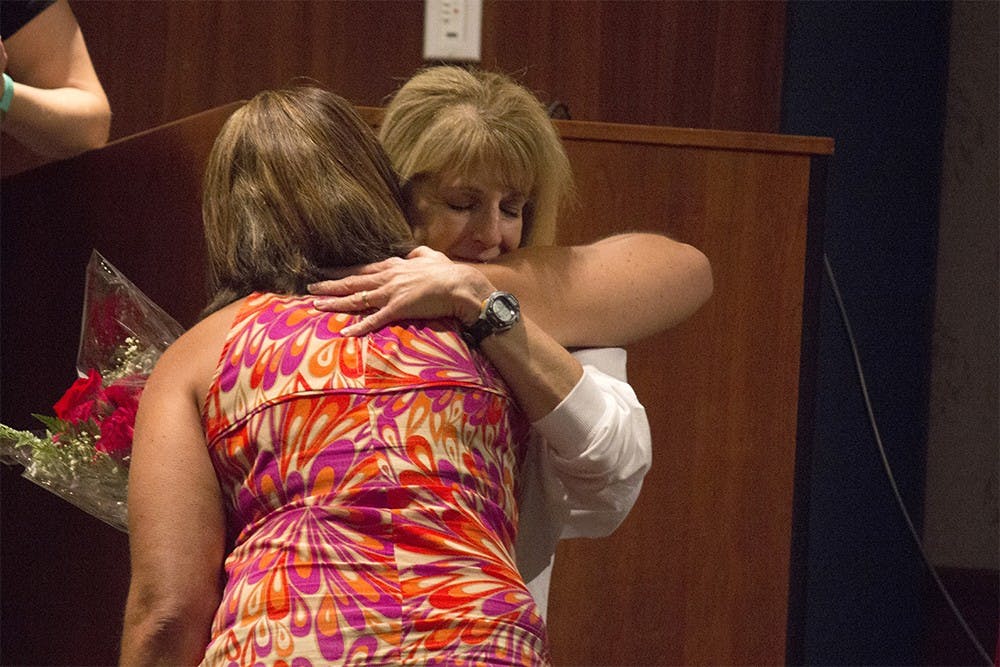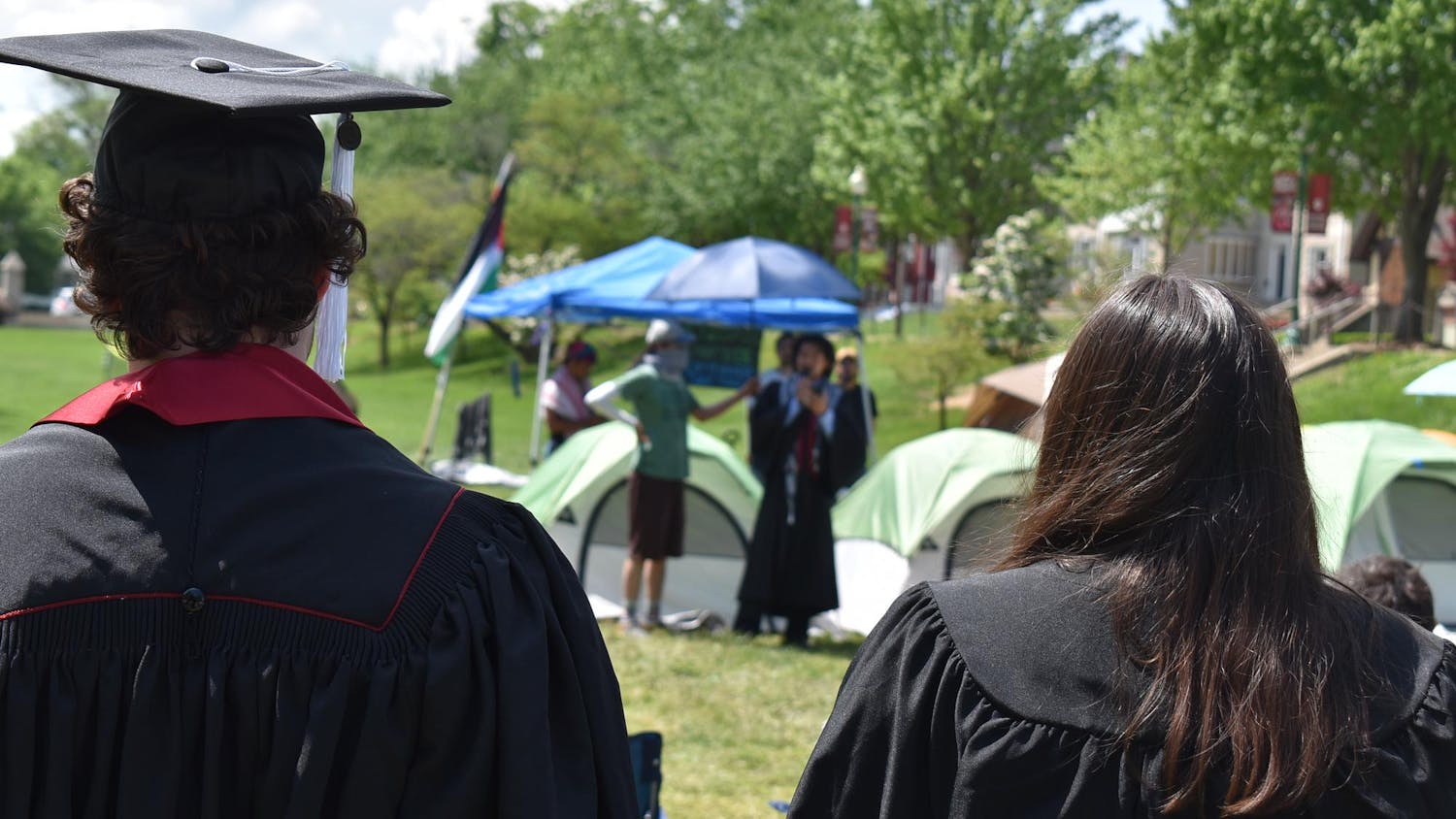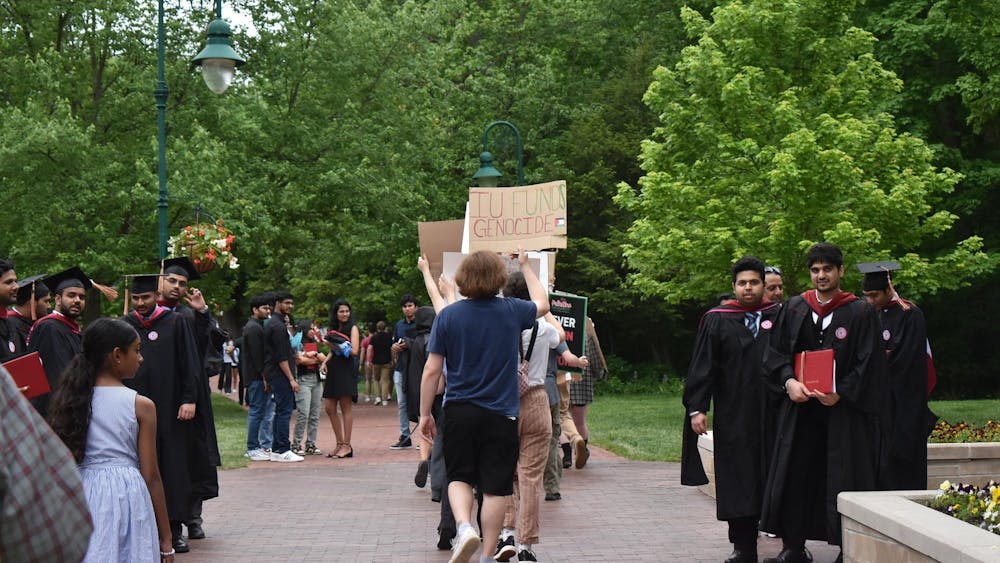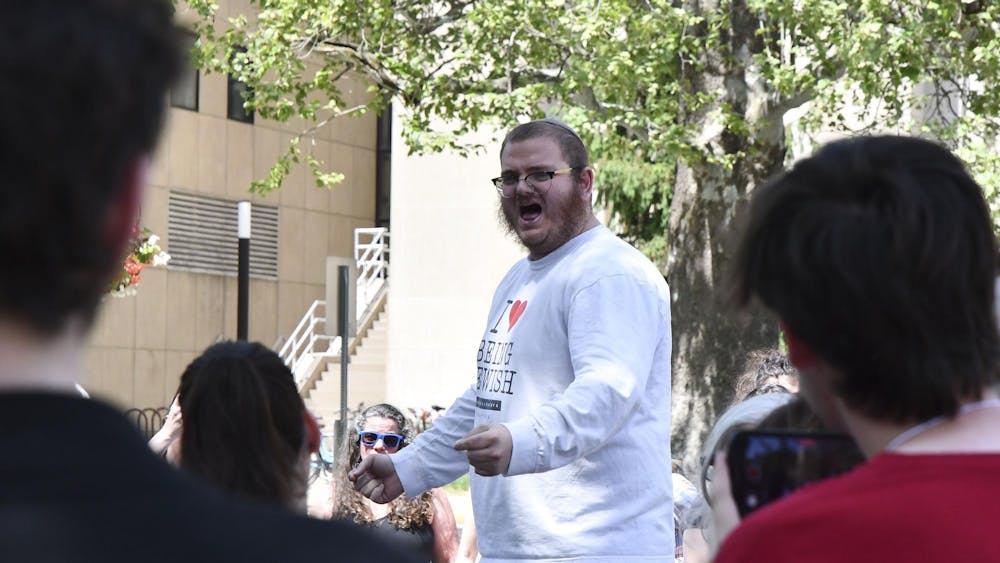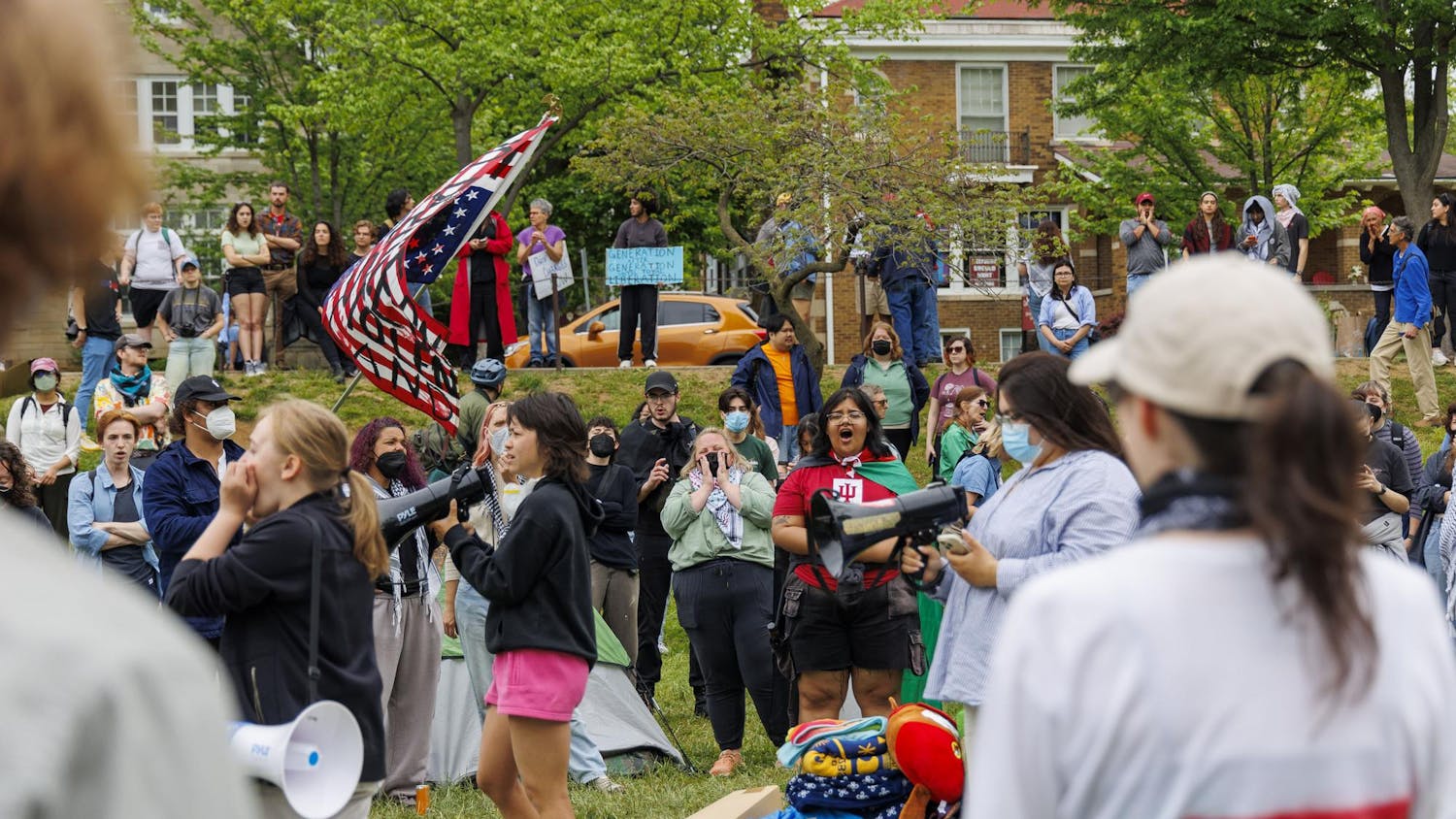“Rachael’s First Week” is a program designed to help high school seniors and college freshmen safely transition from high school to college, according to the program’s website.
Angi Fiege, Rachael’s mom, created the program in an effort to prevent tragedy striking another family after tragedy struck her own.
Angi dropped her freshman daughter, Rachael, off at IU on Aug. 21, 2013. Two days later, Rachael fell down basement stairs during a party, hitting her head.
Rachael’s friends moved her to a couch and waited to call an ambulance until morning. They didn’t know her brain was bleeding and that she would die the next day.
“Two years ago to the day, I dropped her off at IU in the fall and then two days later, she died,” Angi said. “The hardest thing I ever did was unpack her room after carefully putting everything in it.”
She said that as students embark on this stage of their lives, accidents happen.
“You’re suddenly grown up and you’re going to encounter a lot of things you’ve never seen,” she said.
Rachael’s First Week travels to high schools and universities, addressing the dangers that college students may face — not only alcohol, but also drugs, sexual assault and mental illness.
“Tonight we’re here to inform you. We’re here to educate you, because you’re going to have a lot of decisions to make in the next four years, and I want you to make the right ones. I want you to have every opportunity to make the right decisions,” said Jacob Capito, an emergency medicine resident at the IU School of Medicine.
Capito, like the other speakers, stressed the importance of using your common sense and caring for your friends, because what happened to Rachael could happen to any college student, he said.
“We were pretty similar,” he said of Rachael. “We both loved soccer. We both worked hard on and off the field. We both had aspiring careers to become medical workers. But what really hit hard is that I found that I could have been in her shoes. I could have been in her exact shoes eight years ago. And I had similar experiences, and so when I heard her story, I was like, ‘I’ve got to get involved.’”
Capito then asked the audience how many of them thought they would make the call for help. Of those who replied, a vast majority said they thought they would make the call.
“It’s easy to say right now, right here,” Capito responded, but added that only 10 percent of students would actually make the call.
“We know that there’s a sense, when this happens, of being unsure,” he said. “What’s going to happen to us if we make that call? What’s going to happen to the victim if we make that call? Who’s going to get in trouble? And so tonight we’re going to tell you a little bit more about that, in hope that we can reverse what is the reality.”
Jeremy Fiege, Rachael’s brother, stressed the important of the Lifeline Law.
Broadly speaking, the Lifeline Law provides certain immunities to those, including those underage, who call for medical help in emergency situations.
“If you are concerned about someone and you aren’t sure whether you’re protected or not or whether that person is protected or not, please, make the call,” Jeremy said. “Because the consequences of not acting are potentially catastrophic.”

